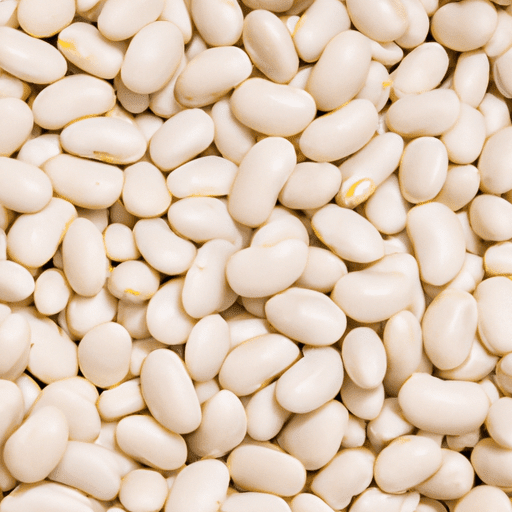Exploring the Delights of White Beans: A Versatile and Nutritious Ingredient
White beans are a culinary treasure that often goes unnoticed amidst the vibrant world of legumes. With their creamy texture, mild flavor, and numerous health benefits, these unassuming beans deserve a spotlight in your kitchen. In this blog post, we will delve into the fascinating world of white beans, exploring their taste, versatile uses, nutritional value, and intriguing history.
The Taste and Texture of White Beans
White beans, such as cannellini and Great Northern beans, boast a delicate and slightly nutty flavor profile. Their creamy texture adds a comforting mouthfeel to each dish, making them a popular choice in a wide range of culinary creations. Whether tossed in soups and stews or used as a base for dips and spreads, white beans bring a delightful creaminess and subtle earthy taste that complements a variety of flavors.
Versatile Uses in Cooking
When it comes to the culinary landscape, white beans shine as a versatile ingredient that knows no boundaries. They effortlessly adapt to various cooking methods, adding depth and nourishment to numerous dishes. Here are some popular uses of white beans:
Soups and Stews: White beans work wonders in hearty soups and stews. Their soft texture helps create thick and luscious broths. Combine them with vegetables, herbs, and spices for a comforting meal that will warm your soul.
Salads: White beans bring a protein-packed punch to salads, transforming them into satisfying meals. Toss them with fresh greens, cherry tomatoes, cucumber, and a zesty dressing for a nutritious and filling dish.
Mashed beans: Just like mashed potatoes, white beans can be mashed to create a creamy and nutritious side dish. Blended with butter, garlic, and herbs, they make a delectable alternative to traditional mashed potatoes.
Dips and Spreads: Create creamy and flavorful dips by pureeing white beans with herbs, lemon juice, and a dash of olive oil. Serve with crunchy vegetable sticks or pita bread for a healthy and satisfying snack.
Baking: White beans can even make their way into baked goods, acting as a healthier substitute for butter or oil. Add pureed white beans to brownie or cake batter for moist and guilt-free treats.
Nutritional Powerhouse
Beyond their pleasant taste and culinary versatility, white beans pack a powerful nutritional punch. These nutrient-dense legumes offer an array of vital benefits for your well-being. Here are a few reasons to make white beans a regular part of your diet:
Fiber: White beans are an excellent source of dietary fiber, promoting a healthy digestive system and supporting weight management.
Protein: As a plant-based source of protein, white beans are a boon for vegetarians and vegans. They provide essential amino acids, aiding in muscle growth and repair.
Vitamins and Minerals: White beans are rich in vitamins and minerals like folate, magnesium, and potassium. These essential nutrients contribute to various bodily functions, including blood cell production, bone health, and nerve function.
Low in Fat: White beans are naturally low in fat, making them a guilt-free addition to your meals. They provide sustenance without unwanted calories.
History and Fun Facts
White beans have a long and fascinating history that spans continents and cultures. Here are a few intriguing facts about these delightful legumes:
- White beans have been cultivated for thousands of years and can be traced back to ancient Egyptian and Greek civilizations.
- They were introduced to the Western Hemisphere during the era of European exploration, and their popularity quickly spread.
- In Italian cuisine, white beans feature prominently in dishes like Pasta e Fagioli and Minestrone, showcasing their importance in Mediterranean cooking.
- In the United States, white beans play a key role in traditional Southern cuisine, often showcased in comforting dishes such as Hoppin’ John and white bean chili.
Conclusion
White beans are a true culinary treasure, offering a mild and nutty taste, versatility in cooking, and an array of health benefits. From soups and salads to spreads and baked goods, these unassuming legumes elevate every dish they grace. Embrace the creaminess, savor the flavor, and reap the rewards of white beans in your culinary adventures.
Facts about White Beans:
Origin: White beans, also known as navy beans or haricot beans, are believed to have originated in Central and South America. They were later brought to Europe by Spanish explorers during the colonial period.
Common Uses: White beans are a versatile ingredient, commonly used in various cuisines around the world. They are often used in soups, stews, chili, salads, and even in desserts.
Nutritional Benefits: White beans are a nutrient-dense food. They are an excellent source of plant-based protein, dietary fiber, and essential minerals such as potassium, iron, and magnesium. They are also low in fat and cholesterol. Additionally, white beans contain complex carbohydrates that provide sustained energy.
Unique Properties: White beans have a mild and delicate flavor. They have a creamy texture when cooked, making them ideal for creamy soups and dips. Due to their light color, they can easily take on the flavors of the other ingredients they are cooked with.
Historical Significance: White beans have a significant historical role, especially in the United States. During the American Civil War, white beans were a staple food for soldiers, earning them the nickname “navy beans.” They were an important source of sustenance due to their long shelf life and nutritional value. Today, white beans remain a popular pantry staple for their versatility and nutritional benefits.




Use the share button below if you liked it.
It makes me smile, when I see it.